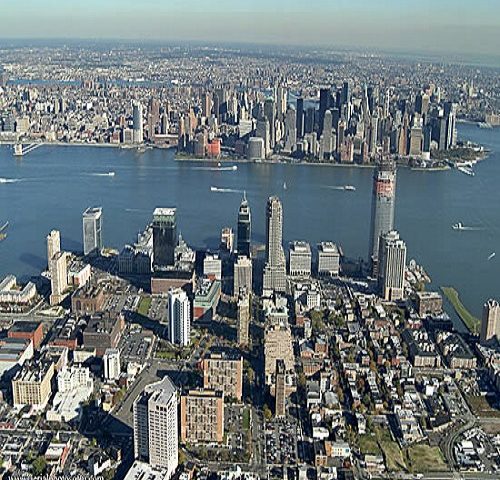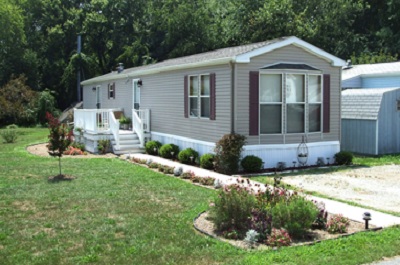NEW JERSEY REAL ESTATE – A general perspective
Home prices in parts of the New Jersey real estate market are creeping gradually higher but foreclosures continue to slow the state’s housing market and economy.
In areas such as previously fast-growing suburban counties or long-depressed urban areas, low prices may be the precursors to lasting economic change.
The overall numbers have improved but New Jersey continues be among the leaders in both foreclosures and mortgages in trouble. Home values, which in much of the country have rebounded strongly since the “Great Recession”, continue to tread water in much of our state.
Atlantic City and Trenton rank first and second in the nation for foreclosures. Beyond those sore spots, observers point to areas like Ocean County, where they say the double blows of the recession and Superstorm Sandy may be changing the long-term dynamics of the real estate market.
High rates of cash sales of property in these areas suggest large investors making speculative purchases are replacing individual home buyers as driving forces in those markets. I foresee one result- more rentals and fewer owners with strong links to those communities.
NEW JERSEY REAL ESTATE- A look at the numbers
In many ways what we are seeing in those areas, and in New Jersey overall, is running counter to the positive national trend. There are still a lot of foreclosures, a lot of distressed mortgages and prices remain well below the levels they reached before the recession.
Median home prices reached their peak in New Jersey at $350,000 in July 2007, slightly later than most of the nation. Even after a recent short burst, they are now only at $302,600, 14 percent lower. The average days on the market for properties listed for in New Jersey is 149 days which is drastically behind the National average of just 90 days.
Last April, CoreLogic a California based real estate analysis firm reported the state’s average housing prices rose by 1.6 percent during the previous year. But that gain was less than 46 other states and the District of Columbia. For the nation, the increase was 6.8 percent.
Zillow, calculated that housing values have dropped 11 percent in Atlantic City in 12 months, and 26.7 percent of mortgages there have negative equity. The problems however extend beyond the city.
Egg Harbor and Pleasantville were both down more than 7 percent, according to the firm. Dennis and Woodbine townships in Cape May County both saw double-digit drops in home values; however those numbers were based on fewer sales. In Cumberland County, Bridgeton homes are worth only an average of $68,300 and their prices are also falling. In Mercer County, the average value of a Trenton home is $83,000, down 1.4 percent. Prices are nearly twice as high in Neighboring Hamilton Township, but they dropped 1.9 percent, Zillow found.
NEW JERSEY REAL ESTATE- Newark and surrounding area
In Newark, where for a time housing values were coming back slightly faster than the state average; reports show them essentially stagnant, down half a percent.
Downtown Newark’s Military Park, which for years was barren and surrounded by vacant buildings, was a symbol of the despair. Now it’s at the center of hope that a recovery for New Jersey’s biggest city may finally be taking hold.
Across from the park the old Hahne & Co. department store debuted last month as a $174 million redevelopment with 160 apartments, a Rutgers University arts program and a jazz museum. There will also be offices, a restaurant by celebrity chef Marcus Samuelsson and a Whole Foods supermarket that’s set to open March 1, bringing life to a building that had sat empty since 1987.
In contrast, Philadelphia’s prices rose 29 percent. Brooklyn has become one of the least-affordable places in the country compared to its historic norms. The New York City area as a whole, and Jersey City saw a 4.3 percent year-over-year price increase.
I recently asked a friend of mine, Professor Charles Steindel of Ramapo College and New Jersey’s former chief economist, what his analysis was and he pointed to the same culprit in the problem areas. “Foreclosures are still high in much of the state”, he said.
But Professor Steindel also added he is “a little encouraged that home prices are falling” in some of those places. “To an extent it reflects properties moving through foreclosure and coming to market at lower prices. The number of new cases is finally slowing down,” he said, “creating a path toward potential improvement”.
According to State court filings, through the first quarter of 2016, lenders filed about 11,000 foreclosure cases. That was well above the pre-recession pace of about 20,000 a year, but far down from the peak of 63,000 in 2009.
New Jersey requires courts to approve foreclosures, with the properties then going through county sheriff’s departments for disposition. That process generally takes years.
“You’re not really seeing banks offering many modifications, those that were generally did it to meet the requirements of their settlements with the federal government over mortgage-fraud allegations. But they’ve satisfied those terms, and now even the federal mortgage aid programs are coming to an end, so there’s no incentive to do more”, According Steindal.
In New Jersey, the sheriff’s sales process has another effect, removing affected properties from the consideration of most individual buyers. Very rarely does anybody go to a sheriff’s sale looking for their new home.
Instead, mortgage holders are selling properties to institutional buyers, who take a longer term view, waiting for prices to rise before returning them to market, or converting single-family houses to apartments to accommodate those displaced from their homes by foreclosure.
NEW JERSEY REAL ESTATE- The Shore
But this year there is also plenty of optimism about a turnaround in Shore rentals. Superstorm Sandy in 2012 devastated some communities, washing away homes, roads, and other structures.
The result was tough times in Lavallette, Seaside Park, and Ortley Beach, which was virtually ground zero for storm damage.
The following year was the worst anyone could remember,. Summer rentals were down 60 percent and sales down substantially. Some of the usual rental properties were gone, others uninhabitable or inaccessible but more people came back in 2014 and 2015 and 2016.
Today, a lot of people are rebuilding and are renting out to help pay for it. That is helping both to meet demand and keep rents stable. Professionals are confident that new or rebuilt homes will withstand future storms.
30 or 40 years ago people built their shore homes or inherited them but with tougher building codes and flood-insurance requirements, it takes considerable cash to rebuild and some people simply get worn out from fighting with insurers and government agencies.
It is changing the demographics and many analysts agree, as long-time owners leave, their replacements may be something completely different than we are used to seeing in that part of the State.
End
New Jersey Real Estate In Perspective is a blog by Dwayne Randolph.
If you like this article, please like or share.
Click here to stay up to date with our new articles on the New Jersey Real Estate market and company news and promotions.
Dwayne Randolph is the Founder of CREIV Properties, LLC, a real estate solutions company. If you have a property you need to sell fast. We buy houses in NJ and nationwide.






